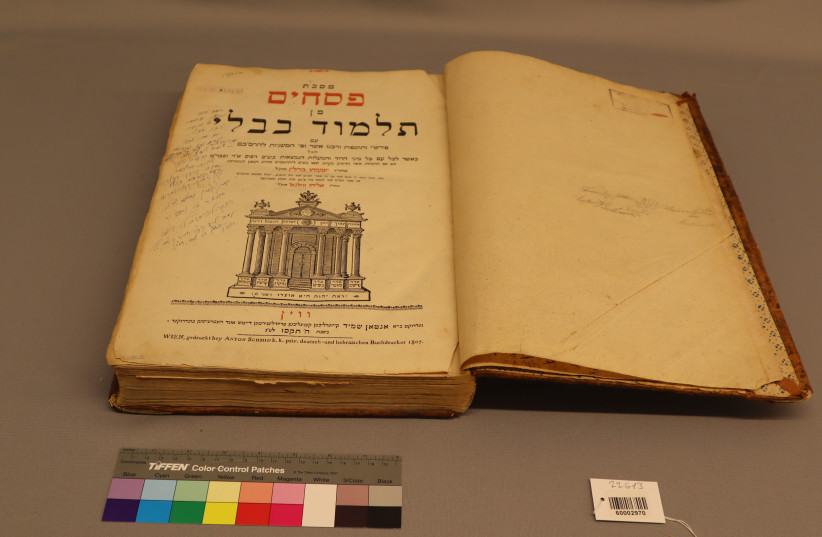It’s kind of disheartening, yet also strangely comforting to know that many of the issues we are dealing with today have kind of always been around.
Like many others, I try and keep up with Daf Yomi – learning one page of Talmud per day.
As one might expect from a text first written down some 1,500 years ago and commented on ever since, there are many topics and issues there that are difficult to understand and sometimes even more difficult to relate to.
Some have pointed out that when learning these texts and their commentaries, in many ways you are actually having conversations (and sometimes arguments) with other generations.
It’s often striking, and – depending on the issue – depressing, reassuring or even sometimes comical when you come across things that are just as relevant today as they were in Babylonia or the Land of Israel thousands of years ago.

Quite remarkably, within just a few lines of each other on page 8 of the Tractate of Bava Batra, which I just got to, the text discusses what are perhaps the two most pressing issues confronting Israeli society right now – the obligations of Torah scholars to the broader society in which they live, and the importance of redeeming hostages.
Issues are not black and white
As much as many of us might like things to be black and white or exactly fit how we think the world should be, life is rarely ever like that, and the Talmud – a collection of ancient oral traditions which countless people have tried to explain and explicate over thousands of years – is also not.
On these two issues, for example, there are portions where it seems clear that Torah scholars are exempted from participating in various taxes and communal undertakings, and yet the underlying question of who falls under the category of “Torah scholar” remains contentious and elusive all these generations later.
A few lines later, the ancient sages discuss how and why being held hostage is worse than natural death, worse than death by the sword, or by famine, and that’s why it is such a critical mitzvah to redeem captives – so important that in many cases charitable money dedicated to other things must be redesignated if the opportunity arises to use it to secure their release.
Perhaps this one Talmudic page has a lot to teach us about how we can or should deal with these issues today. Perhaps trying to get that sort of meaning out of it would only serve to confuse or distract us, as we often simply try to reinforce our existing opinions or find those commentators to whose views we most strongly relate.
There are rarely unambiguous instructions from these ancient texts for dealing with issues that have, to varying extents, remained relevant across the generations. Yet, on some level, perhaps even just the fact that we can relate to our ancestors also having had to deal with them can provide some unexpected source of grounding for the unstable contemporary reality in which we find ourselves.
The author is a Jerusalem-based writer and publicist. He is currently senior strategist at Concrete Media, and previously served as the National Library of Israel’s international spokesman.
